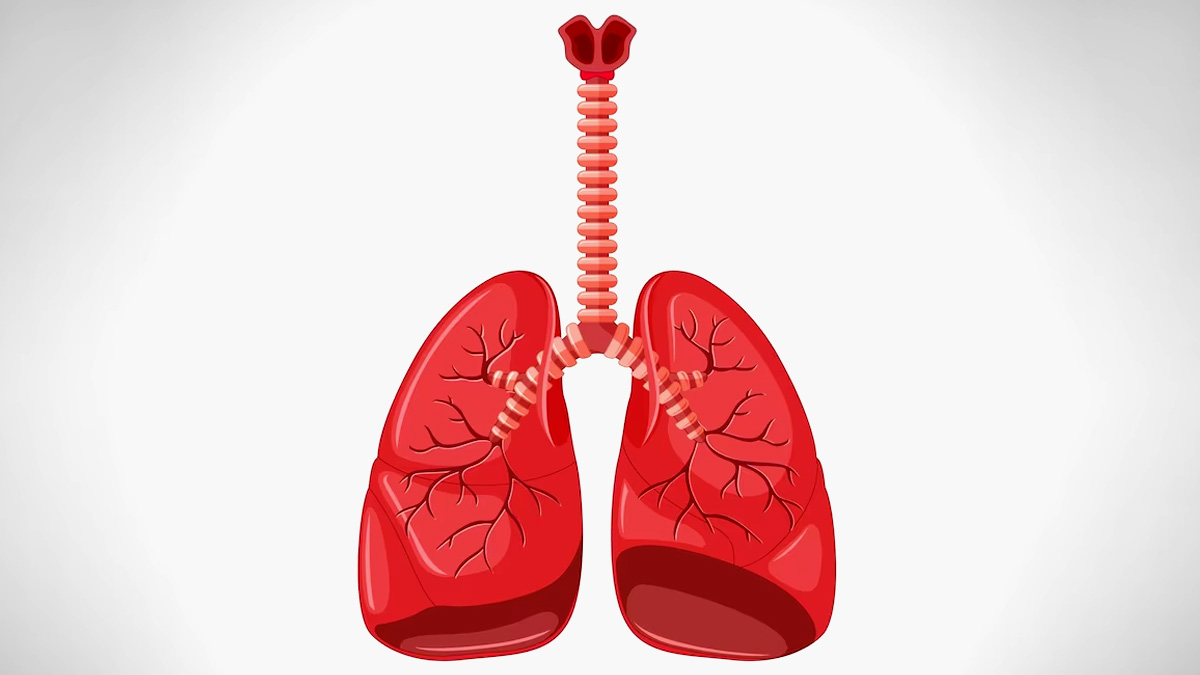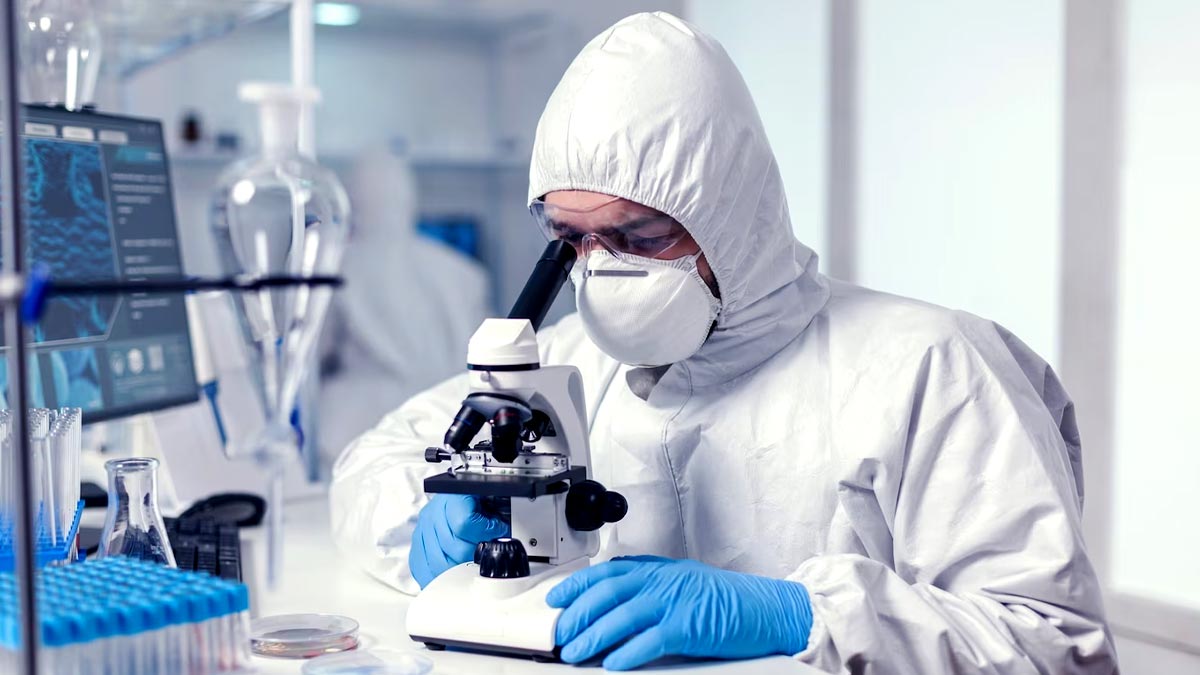

Lung cancer is caused by abnormal cells that multiply uncontrollably to form tumours. In early stages symptoms of lung cancer might not be visible. Chest pain, frequent coughing, blood in the mucus, breathing issues, difficulty swallowing or speaking, loss of appetite and weight loss, exhaustion, or swelling of the face or neck are all indications of lung cancer. Additional symptoms may emerge as the cancer spreads (metastasises) to other tissues.
Lung cancer is on the rise in India. 5.9% of all cancer cases are lung cancer, making it the country’s fourth most common kind. According to 2020 data, lung cancer cases numbered 98,278 (71,788 males and 26,490 females). As per Indian Journal of Medical Research, in 2022 that number spiked to 1,03,371, an increase of 5.2%, a trend that is expected to continue
According to the American Cancer Society, there are two main types – Non-small cell lung cancer(NSCLC) which accounts for 80-85% of cases, and Small cell lung cancer (SCLC).

Causes
Cancer develops when genetic mutations accumulate in important genes, particularly those that control cell growth and division (proliferation) or repair of damaged DNA. Due to these changes cells grow and divide uncontrollably and form a tumour. In almost all cases of lung cancer, these genetic changes are acquired during life and are present only in certain cells in the lung.
Also read: Is There Any Link Between Asthma and Lung Cancer? Expert Explains
“These changes, called somatic mutations, are not inherited. In lung cancer cells, somatic mutations have been found in many different genes”, said Dr Suruchi Aggarwal, Ph.D., Head Scientific Affairs – Oncology, MedGenome.
“Rarely, the change in genetic material is inherited and is present in all cells of the body (germline mutations). Somatic mutations in the EGFR and KRAS genes are most common in lung cancer”, added Dr Aggarwal.
Researchers have identified numerous lifestyle and environmental factors that expose people to cancer-causing compounds (carcinogens) and increase the rate at which somatic mutations occur, contributing to a person’s risk of developing lung cancer.
Risk Factors
Long-term cigarette use is the most dangerous risk factor. Exposure to air pollution, radon, asbestos, certain metals and chemicals, or secondhand smoking are all risk factors, as is long-term use of hormone replacement therapy for menopause and a history of lung disorders such as TB, emphysema, or chronic bronchitis.
Also read: Lung Cancer Takes 1.8 Million Lives Annually, Expert Suggests Prevention Tips
According to Dr. Aggarwal, a family history of lung cancer is an important risk factor; however, if relatives with lung cancer are heavy smokers, it is unclear whether the higher risk is due to hereditary factors or secondhand smoke exposure.
Importance of genetic testing in Lung Cancer management
Precision medicine using genetic biomarker testing has revolutionised the treatment of lung cancer with targeted therapies over the past two decades. Tumour biopsy is the gold standard for genomic biomarker testing, but in some patients it is difficult to obtain or is degraded or insufficient for testing. A mimic liquid biopsy test has proven to be a powerful alternative and helps these patients receive the best treatment.

Here’s a look at how genetic screening using the latest liquid biopsy expertise could be a game-changer.
- A liquid biopsy is used to detect genomic biomarkers in circulating tumour DNA (ctDNA) which is shed into the bloodstream from dying tumour cells.
- It is a beneficial alternative in the absence of tumour biopsy, can be used as complementary to tumour biopsy to understand complete mutation profile of the disease or reflex to tumour biopsy to monitor the disease after treatment and determine acquired resistance in specific clinical situations and offer significant benefits.
- Liquid Biopsy based mutation profiling proves to be a powerful tool to monitor the treatment response, predict relapse and identify acquired resistance mechanisms.
- In EGFR mutated non-small cell lung cancer patients, tyrosine kinase inhibitors are used for targeted treatment but after a certain period of time, the disease becomes unresponsive to these drugs and relapse occurs.
- Liquid Biopsy test helps to identify the specific changes (mutations) that may have led to the resistance to therapy and further guides in changing the treatment.
اكتشاف المزيد من ينبوع المعرفة
اشترك للحصول على أحدث التدوينات المرسلة إلى بريدك الإلكتروني.
